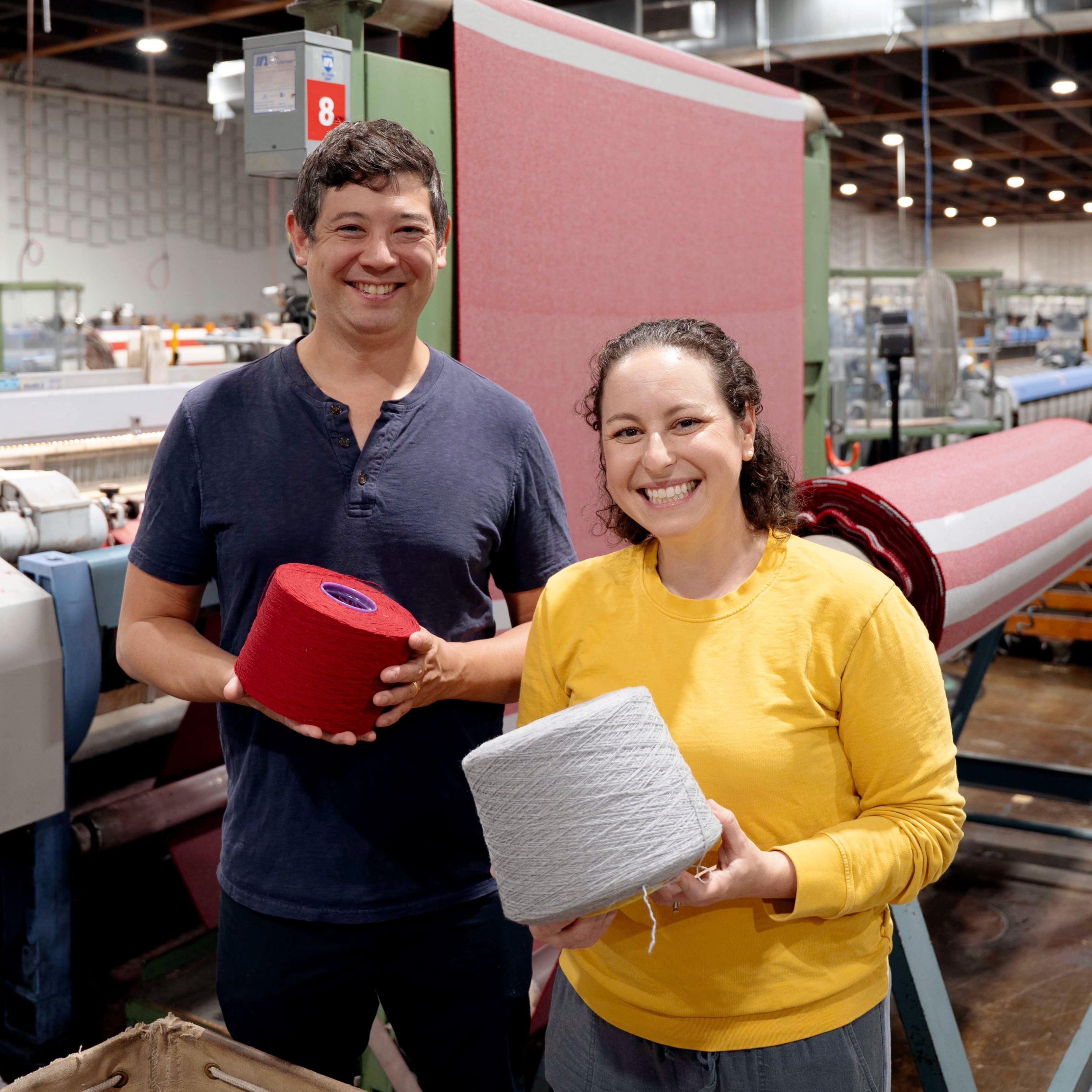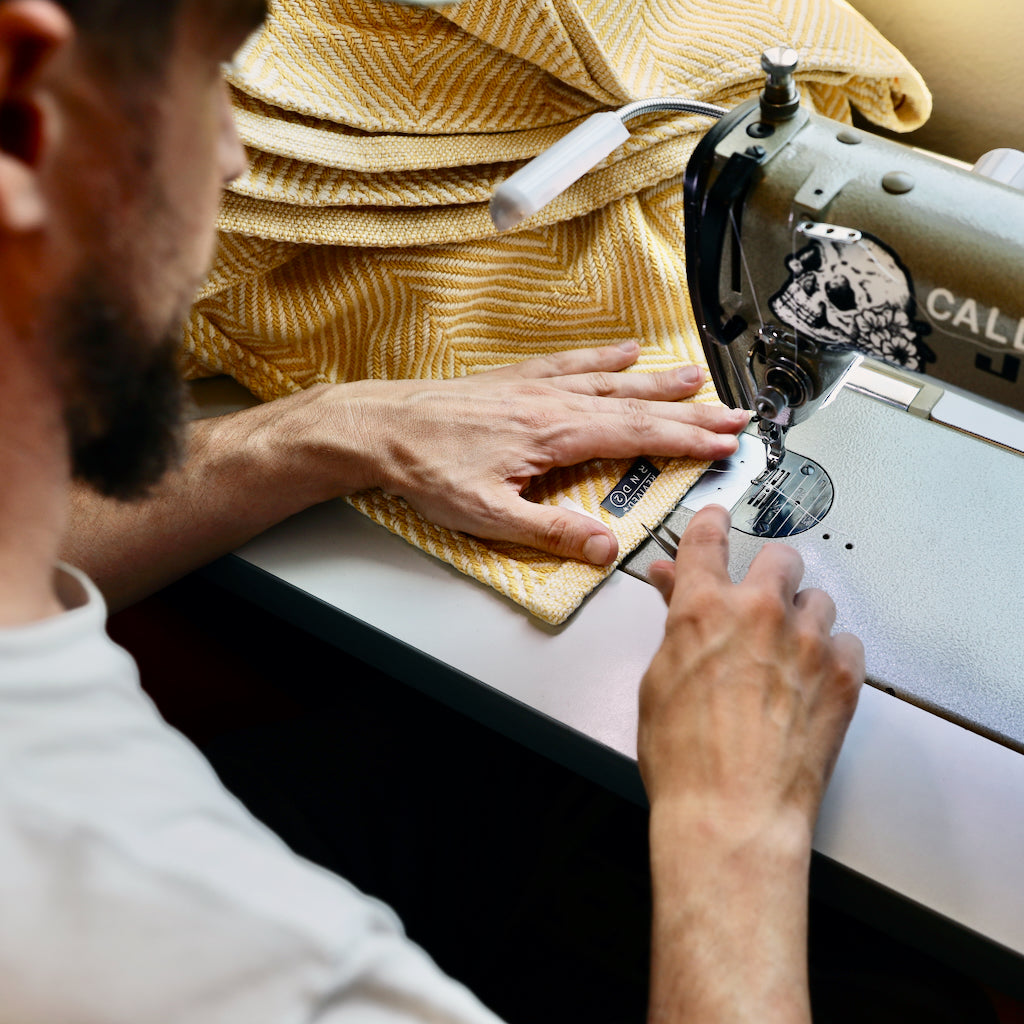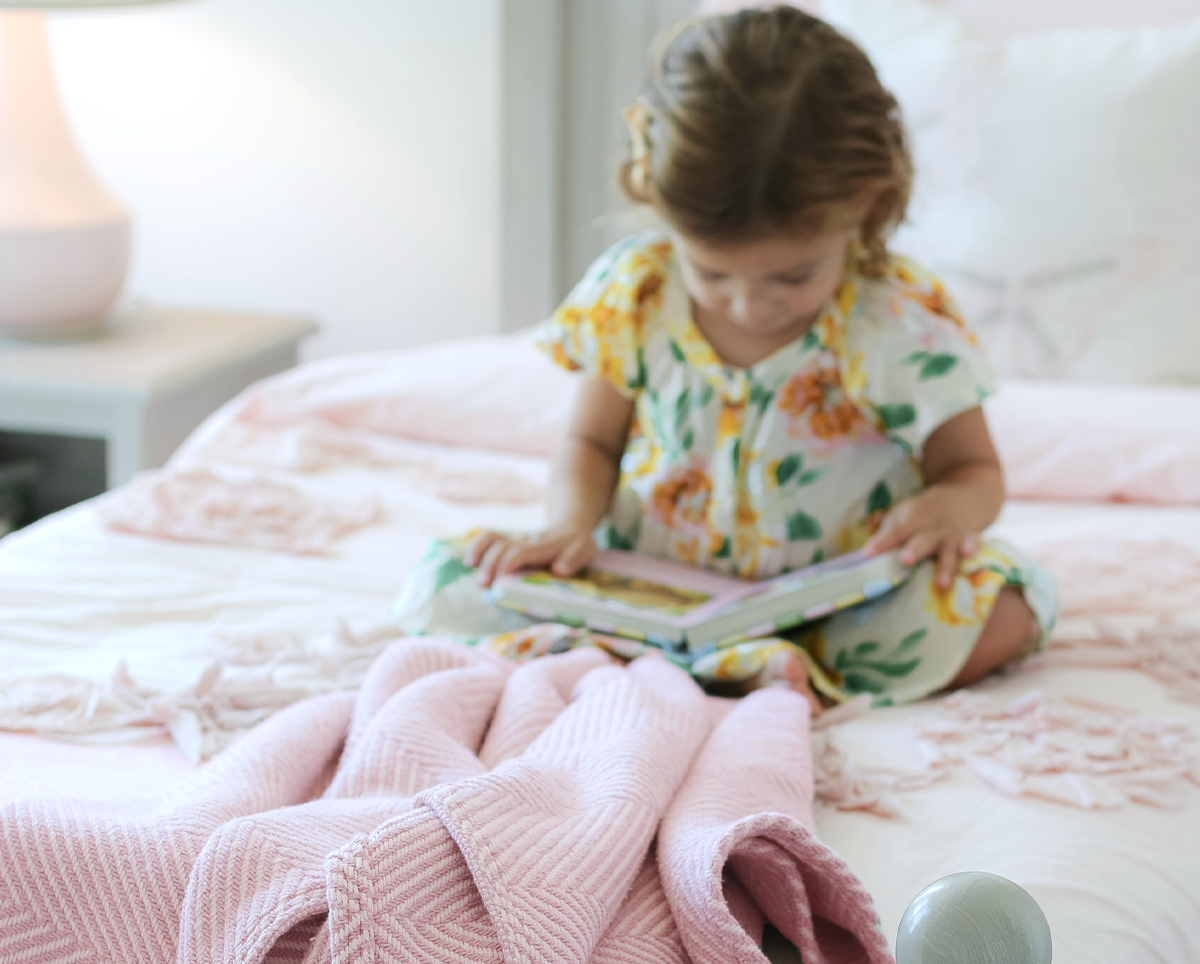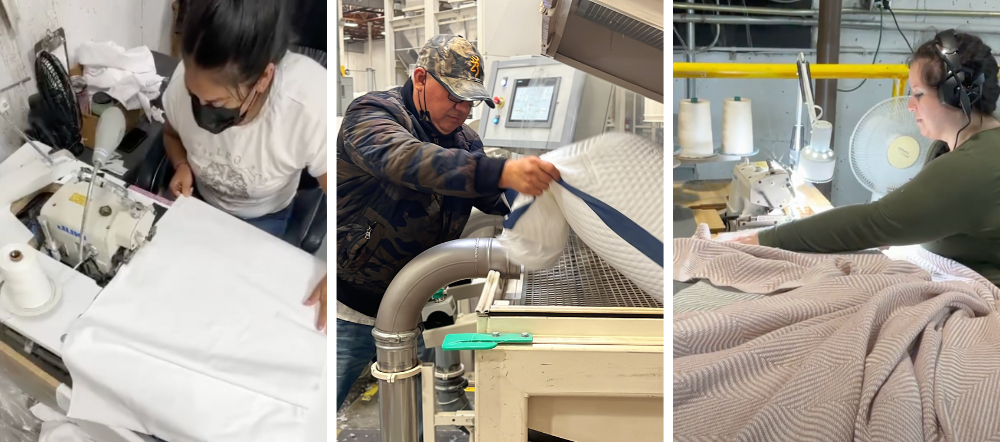The Art of Choosing Bed Sheets: Debunking Myths and Prioritizing Quality
Few things compare to the comfort of slipping into a bed dressed with high-quality sheets. However, navigating the world of bedding can be overwhelming, especially when bombarded with terms like thread count, bamboo/tencel blends, moisture wicking silver lining, and various fabric types. It can be very difficult to know what exactly to look for, when buying new sheets. We're here to help demystify the process!
Our mission at Authenticity50 is to create top-notch American-made bedding and home goods that you can be proud to own and enjoy for years to come. We travel the country and work with the best manufacturing partners - from cotton farmers and yarn spinners, to weavers, finishers and sewers - to make functional products that are also durable, soft, easy to use, and insanely comfortable.
We've learned so much about raw materials, fabrics, weaving, and the complex production process, to figure out how to make amazing sheets, and what REALLY matters when investing in new bedding.
Is Thread Count the most important metric? (hint - it's not.)
One of the most common misconceptions when purchasing bed sheets revolves around thread count. Contrary to popular belief, a higher thread count does not equate to superior quality. In fact, most bedding thread-count numbers are made up and ridiculously inflated by using plied - or twisted - weaker yarns. (Yes, that package of sheets stating a '1,000 thread count', is a marketing gimmick. The company has simply manufactured their bedding with cheap, low-quality yarns, and woven them together to create that inflated number.)
Instead, you must consider factors like fiber quality, weave, and finishing; those are equally—if not more—crucial in determining the comfort and longevity of sheets. It's tempting to say 'x' thread count or 'z' cotton is going to create the best quality sheet but that is like saying this engine makes the best car for everyone or this shoe is the best shoe for everyone. A set of sheets is the sum of all it's parts - from cotton, to yarn spinning and weaving, to finishing and the final cut/sew.

Beyond Thread Count: Key Considerations When Buying Bed Sheets
While thread count garners significant attention, we have to consider the importance of delving deeper into other crucial factors when selecting bed sheets. The type of fabric emerges as a fundamental consideration. Notably, long-staple cotton stands out as a superior choice due to its durability, breathability and luxuriously soft feel. Also the source (provenance) and type of cotton is important - American cotton is among the highest quality in the world ensuring both comfort and longevity when used as the foundation for sheets.
Weave type also plays a pivotal role in the characteristics of bed sheets. For 90% of sleepers, Percale is the superior choice. Used by 5-star hotels, and preferred by the average guest, it has great airflow and temperature regulation, keeping you cool in the summer and warm in the winter. (No more night sweats due to overheating!)

Environmental Impact: The Value of 'Made in USA'
A single mega container ship can create as much pollution as 50 million cars!
Taking care of the environment is essential and extremely important. As parents of young children, we truly care about the planet they're going to inherit. The truth of the matter is that 'green', 'sustainable' and 'eco-friendly' products manufactured overseas for the biggest retailers are not actually green or friendly to the environment at all! The container ships that they are shipped in create more daily pollution than ALL the cars on the entire planet. And it is estimated that a single large container ship can create more pollution than 50 million cars (LINK).
Another factor to consider, is the reliability of environmental certification agencies and false organic claims on consumer products. The New York Times investigated this in a large expose article about the level of 'fake' organic cotton and the inherent conflicts of interests in the certification process.

Death and Labor Issues in the Global Textile Industry
The global textile industry's labor issues extend beyond poor working conditions. Tragic incidents, including factory fires and building collapses, have claimed thousands of lives. These catastrophic events underscore the grave consequences of lax safety regulations and inadequate working conditions prevalent in some overseas manufacturing hubs.
Far too often, the rush to meet demands and cut costs overlooks fundamental safety measures, jeopardizing the lives of garment workers. The devastating Rana Plaza collapse in Bangladesh in 2013, claiming the lives of over 1,000 workers, stands as a stark reminder of the human toll behind the clothes and linens we buy.
By making our products in America, strict measures are taken to protect workers, create safe conditions, and maintain the facilities they are employed in. We've seen first hand how our local partners work hard to ensure they prioritize their employees and the environment, and follow all laws and regulations put in place when ethically manufacturing our products.

Conclusion: Empowering Choices for Quality Slumber
We traveled around the country and learned from real textile experts, in the pursuit of creating the perfect bedding. These manufacturers - who've been in the business for decades - taught us that prioritizing factors like fiber quality, weave, and ethical manufacturing practices are paramount to making quality bedding. By doing so, you'll not only indulge in luxurious comfort but also contribute to a more sustainable future—one night of restful sleep at a time.









1 comment
Cindy Bertoia
I would like to buy king size supima sheets made in the USA. Everything I look at is sold out on your site. Are you still in business?
Leave a comment
This site is protected by hCaptcha and the hCaptcha Privacy Policy and Terms of Service apply.